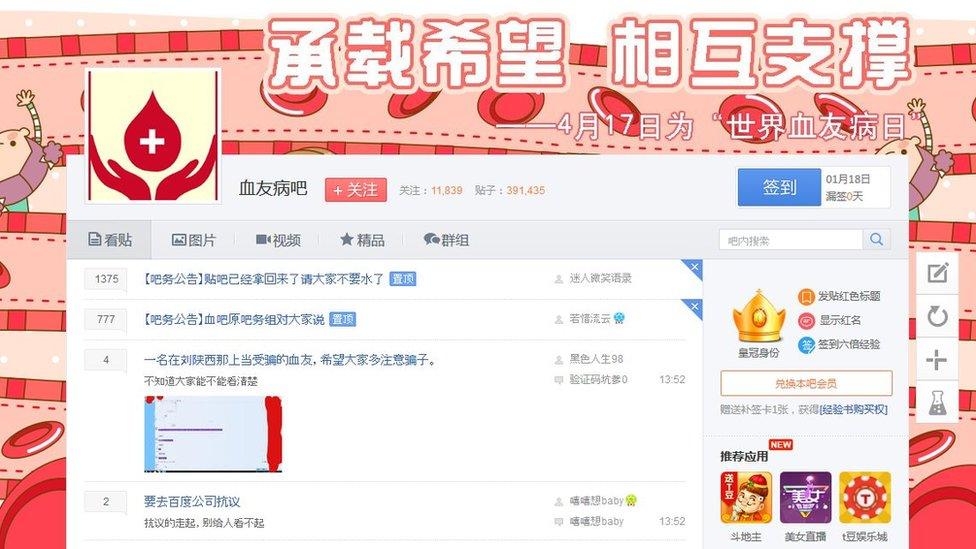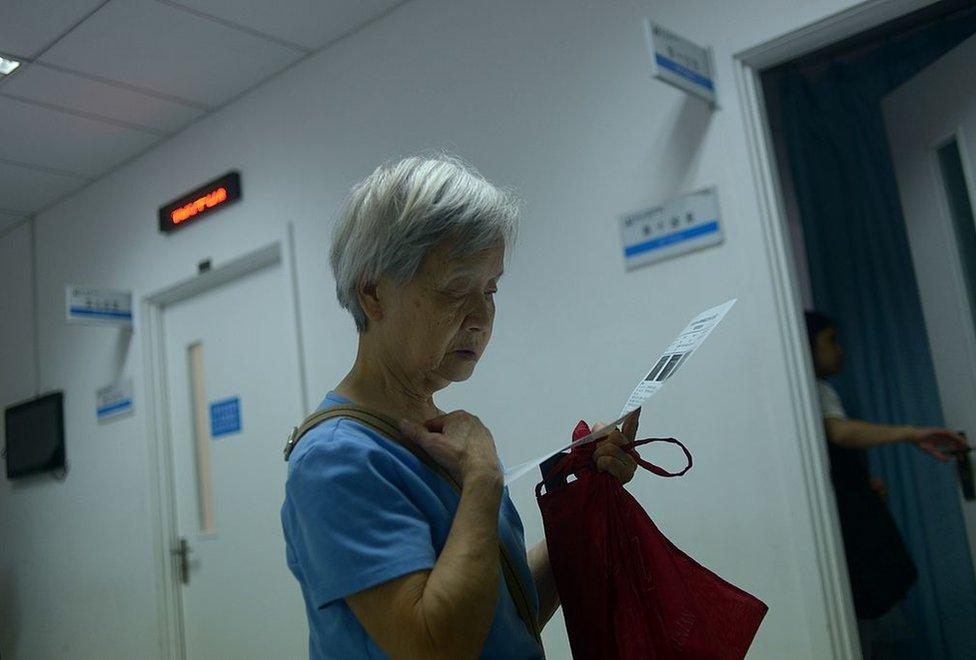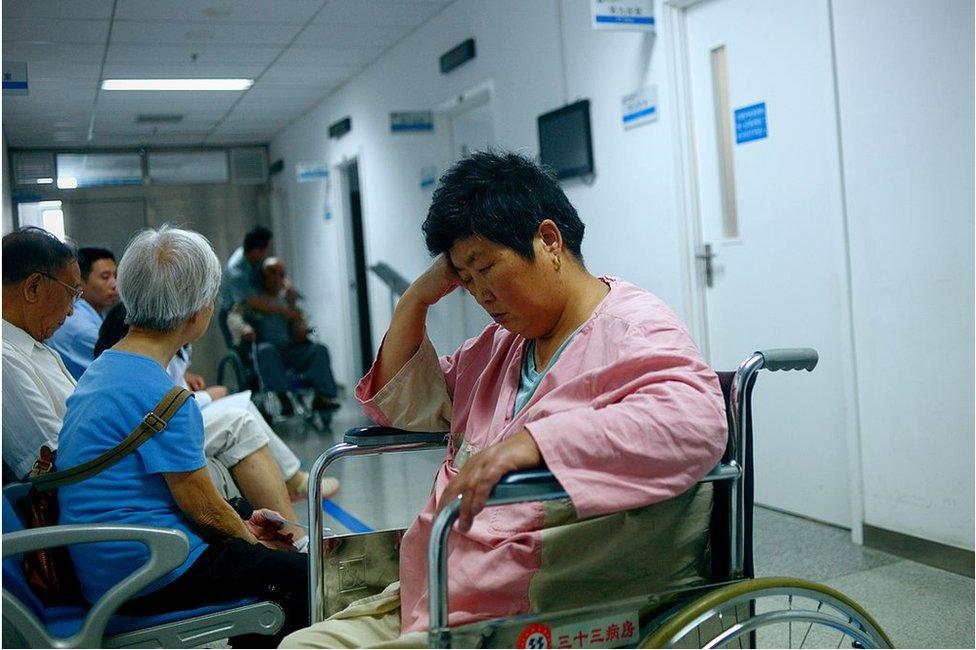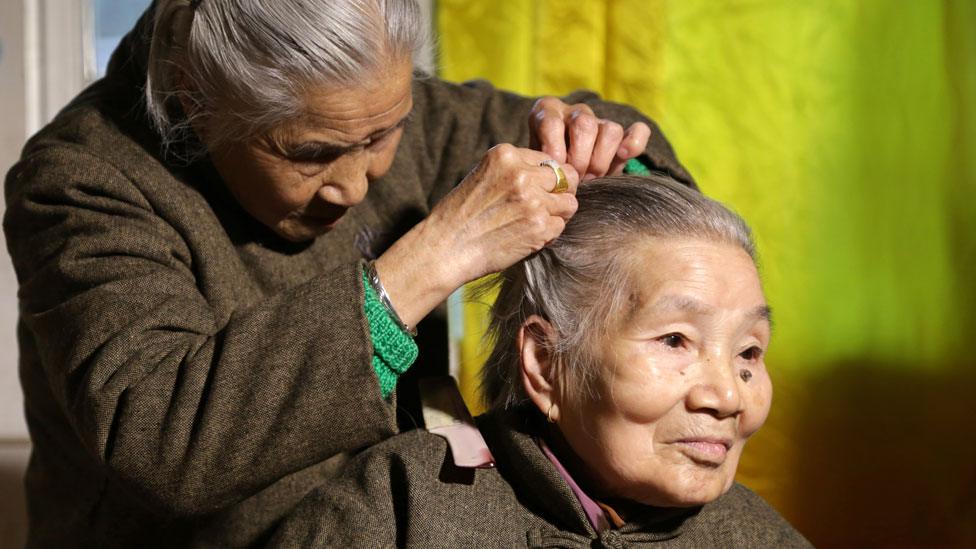China's health forum scandal and public mistrust
- Published

Last week one of China's biggest community sites, Baidu, sparked an outcry when it admitted it allowed healthcare companies to moderate online health forums.
This led to questions about the control of information online and highlighted the declining trust in China's healthcare system.
The importance of independent online forums
Baidu is an internet juggernaut that owns search engine and social media services. Its forums are hugely popular, with 1 billion participants taking part in 19 million discussions which allow many Chinese people to converse about the issues that matter to them.
This scandal first came to light when a whistleblower posted about irregularities within a popular forum for people with haemophilia, an inherited and rare condition that affects the blood's ability to clot.
He alleged that the original volunteer moderator had been replaced with another one who paid for the position, and that this new individual was unqualified and posting information about dubious healthcare providers, as well as censoring criticism on the forum.
Baidu later said it would "stop all partnerships with commercial enterprises" when it came to its health forums, and only allow non-profit groups to moderate.
But it left many netizens outraged and condemning the practice as unethical.
With more than 7,000 participants, the forum was seen as an important independent information resource particularly given concerns about China's healthcare system.

Many Chinese still hold reservations about the country's healthcare system
Highlighting fears about Chinese healthcare
Prof Jin Lei, a medical sociologist with the Chinese University of Hong Kong, says there is a general lack of trust in China's healthcare system.
This mistrust has been building since the 1980s when market reforms saw a slash in government funding for hospitals. Most hospitals are state-run, but state financing can now account for as little as 10% of costs.
This has led to the issue of hospitals aggressively pushing marked-up drugs and high cost services to patients, as well as more serious problems such as accepting and demanding bribes, taking kickbacks from medical suppliers, and selling counterfeit drugs, says Prof Jin.
Many Chinese patients also prefer going to the top public hospitals for treatment, rather than seeking help at lower-tier providers.
"So the doctors and hospitals now are very stretched, spend less time with patients, and that again also leads to mistrust," says Prof Jin.

Many Chinese patients prefer going to the top public hospitals for treatment, leading to a strain in hospital resources
Censorship and matters of health in China
Though China is known for its heavy state control of the flow of information, this usually tends to apply to politically sensitive topics in the mainstream media and social media networks like Weibo.
Many still turn to online forums for free and crowdsourced information which is seen to be more independent, particularly when media outlets are suspected of accepting bribes from businesses for more favourable coverage - a practice highlighted in recent months as authorities moved to crack down on it.
The Baidu scandal, therefore, came as a shock to many who did not expect commercial interests to intrude so pervasively online, especially in the important and personal forum of health.
This "is a very interesting example of how we are now seeing newer online services — aside from Weibo and [messaging app] WeChat — drive agendas in China," according to researchers Han Xiao and David Bandurski, external writing for Hong Kong University's China Media Project.
"In a sense, what Baidu seems to have been doing is not at all different from the state-sponsored project of 'public opinion channelling', or from the way 'online commentators' are routinely deployed to trumpet the Party-state agendas."
Either way, the monetisation of health forums has now become a major focus of concern for Chinese citizens online.
- Published18 May 2014

- Published21 December 2015
